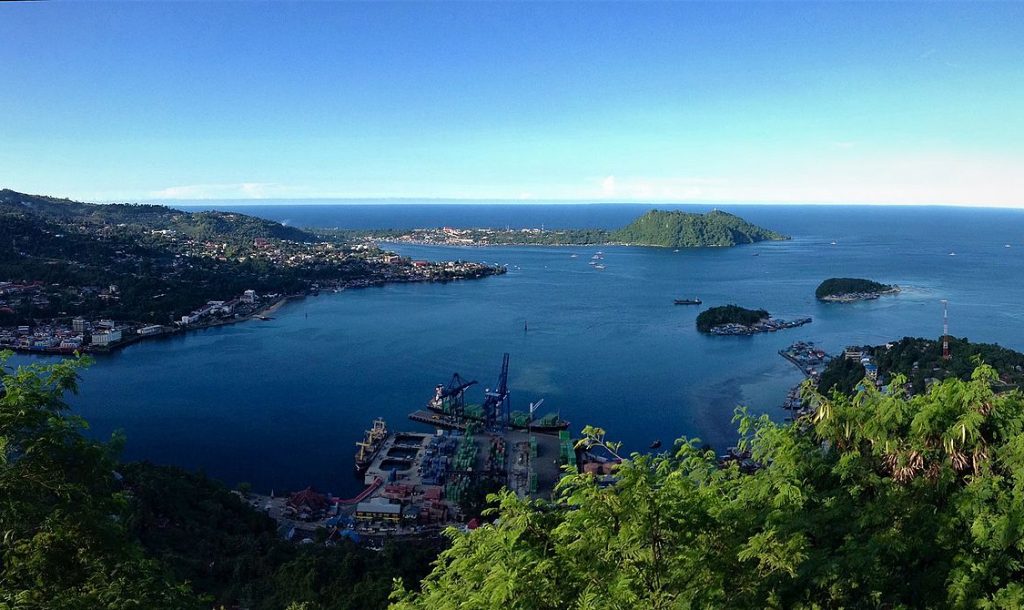Why Jakarta must let the Melanesian Spearhead Group decide who is in and who is out, and what matters for Melanesian people.
The United Liberation Movement for West Papua (ULMWP) has to wait until September (at least) to find out if its bid for full membership in the Melanesian Spearhead Group (MSG) will be accepted.
The decision was supposed to be made on 14 June at the MSG Special Leaders’ Summit convened in Honiara, Solomon Islands. The reason for deferring the decision was supposedly based on questions about the criteria for membership and the MSG forum is now working on its guidelines. But there is a doubt whether the criteria was the issue. Why wouldn’t the guidelines have been discussed years ago, or in 2015 when ULMWP and Indonesia applied for membership? Why are they being discussed now?
The deferral is a classic MSG tactic when members fail to reach consensus. At the recent summit, Fiji and Papua New Guinea rejected the ULMWP full membership bid, while Vanuatu, Solomon Islands and Front de Libération Nationale Kanake et Socialiste (FLNKS) of New Caledonia supported the bid. Deferral is a strategy to buy time for diplomatic efforts to come to a consensus before the next MSG conference scheduled for September.
Even though it is hard to predict whether ULMWP will be granted full membership, there are two main competing forces shaping the decision — Melanesian identity, and economic and political power that could be gained by MSG members through relationships and opportunities with Indonesia. Indonesian commentators might want to emphasise MSG economic agendas, but the MSG also has cultural and political agendas, including decolonisation, peace, safety and improved livelihoods.
It is clear that the Indonesia’s pressures on MSG members will be significant. As Indonesia Foreign Ministry’s Director General of Asia Pacific and African Affairs, Desra Percaya has states, ‘there is no place for the ULMWP in the future of the MSG’. The message is clear: MSG members can enjoy more material benefits from relations with Indonesia or they can support West Papuan solidarity as has been pursued by ULMWP.
According to AM Fachir, Deputy Minister of Foreign Affairs, Jakarta hopes to broaden its economic markets by connecting 11 million Indonesian citizens of Melanesian descent who live in five Indonesian provinces to the MSG countries. It was in the lead up to the 2015 MSG conference when Indonesia suddenly discovered these millions of Melanesians in an attempt to water down West Papuans claims to Melanesian solidarity.
Jakarta claims to be interested in the prospect of greater Melanesian cooperation, including job opportunities, trade and investment, but this agenda has really only received attention since the ULMWP went looking for MSG membership and recognition in the international community. It is a case of Indonesia playing politics in the region via its economic power. Indonesia’s agenda in MSG is explicit — getting the ULMWP (or any West Papua-related issues) off the table.
Indonesia invited MSG members to attend the Democracy Forum in Bali in December 2015. Indonesia committed to assisting the MSG to be actively involved with the broader international community including the Asia Pacific Economic Cooperation forum and Asia Africa Conference. In an increasingly regionalised global order, it is every states’ desire to be engaged in dialogue and opportunities with another forum, and Indonesia has offered to broker these connections for MSG member countries.
Along with this agreement, however, AM Fachir reminded the MSG about its commitment stated in the MSG Establishment Agreement in 2007 that ‘MSG members are to fully respect the principle of the international law governing international relations’. He further cited principles of sovereignty, equal independence and non-interference.
The ultimate decision about ULMWP membership cannot be predicted entirely in terms of economic considerations among member countries. The role of ideas, particularly Melanesian identity and solidarity, is pivotal.
Solidarity with West Papua, particularly against Indonesia’s human rights violations, is widespread across the region and beyond. Vanuatu and Solomon Islands have long been supporters of West Papua. Despite their rejection of the ULMWP bid, PNG and Fiji have long-standing and widespread West Papuan support movements at the grassroots level. ULMWP can make use of the power of churches, NGOs and other civil society actors to gain support for its bid.
In addition, Indonesia does not have a clear strategy in order to deal with Papuan grievances. Demanding that the MSG put the West Papua issue off the table without stating its own strategic plan about what will the Indonesian government will do is a major weakness that can be used by the ULMWP to gain more public support around the region. Continued violent repression in Indonesia, such as occurred recently in Papua and Yogyakarta in relation to demonstrations about the ULMWP, adds more weight to the ULMWP agenda so that a political solution can be achieved.
Despite talk of ‘development’ approaches and better human rights in Indonesia, it is the military and police that still respond to Papuan concerns and issues. Over the past week social media users have been criticising and cursing the racist and violent actions taken by military and some mass organisations in Yogyakarta against Papuan students. Interestingly, the solidarity comes from foreigners but also from other Indonesian people. As grievances and abuses become more visible, moral outrage is increasing. Identity and human rights discourses combined with grassroots support become an important driving force behind states’ behaviors and decisions.
In September, the MSG’s integrity will be undoubtedly be put on the line. The possible widening gap between political leaders and the wider population of the Melanesian region is at stake. The extensive economic benefits versus Papuan solidarity across the southern Pacific will be put on the MSG table.
Let the MSG forum choose what matters for them and what matters for their Melanesian people.
Elvira Rumkabu is a Lecturer in International Relations at Cenderawasih University, Jayapura, Papua.
 Facebook
Facebook  Twitter
Twitter  Soundcloud
Soundcloud  Youtube
Youtube  Rss
Rss 